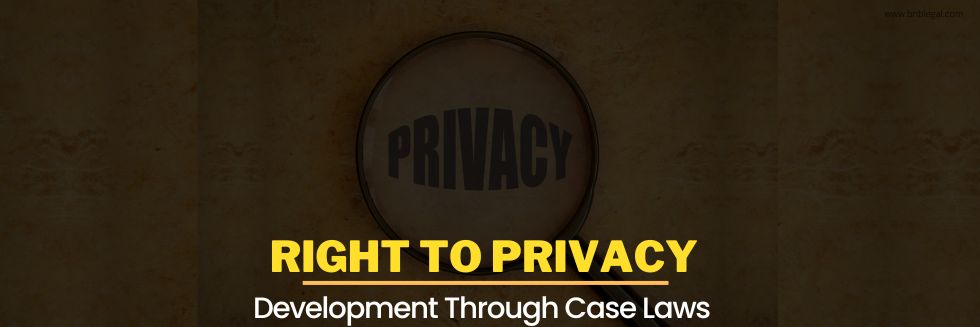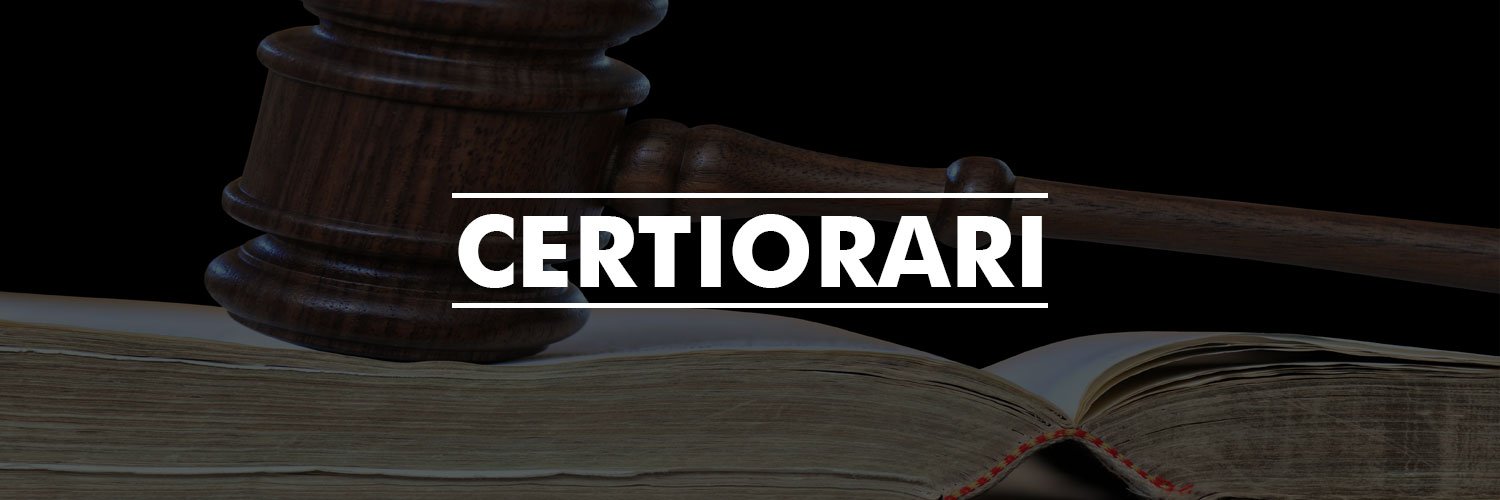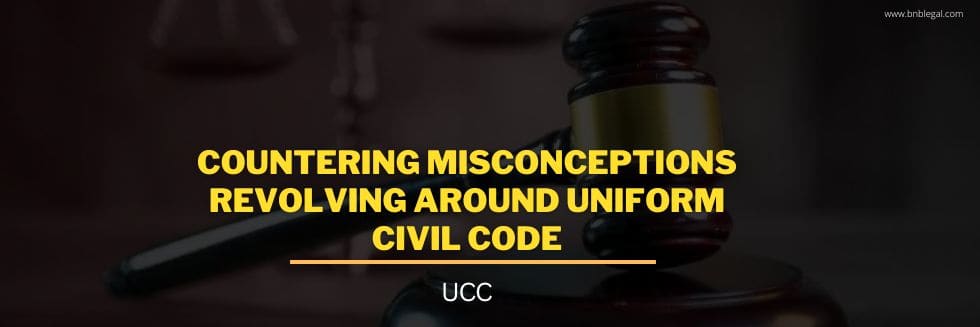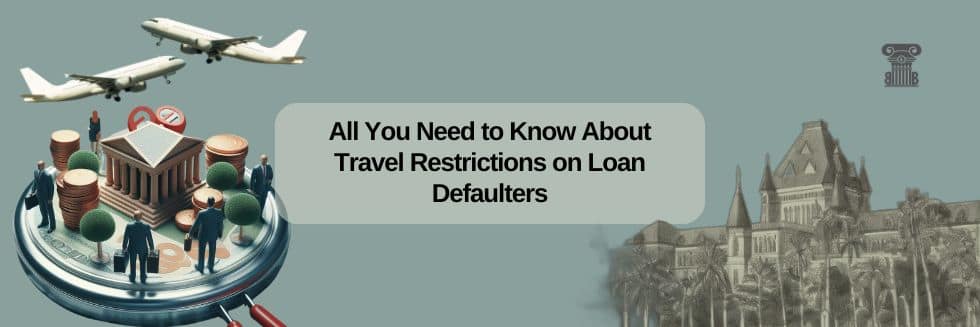Introduction
The concept of privacy is as old as society itself. There is no concrete definition of the term privacy. It cannot be easily conceptualized as it keeps changing according to the needs of society. Different scholars have given different meanings to privacy according to the needs of society. Even in the constituent assembly, there were lots of debates and discussions on the point of privacy and secrecy. It can be concluded from the constituent assembly debates that the right to privacy was intentionally not included in the Constitution. The intention of the legislature in doing so is not so clear. The Constitution does not recognize the right to privacy expressly as a constitutional or fundamental right.
The ‘Right to Privacy’ has recently marked its importance in the Constitution of India, with the decision of the landmark K.S Puttaswamy case, which changed the dimensions of Article 21, or rather added a new aspect to the meaning of Life and Personal liberty. Even before this landmark case, there had been hints of this important right in various cases, but it was not construed.
According to Black’s Law Dictionary, “right to be let alone; the right of a person to be free from any unwarranted publicity; the right to live without any unwarranted interference by the public in matters with which the public is not necessarily concerned”.
In the case of Kharak Singh vs. State of U.P and Ors. (AIR 1963 SC 1295), it was held by the court, “We feel unable to hold that the term was intended to bear only this narrow interpretation but on the other hand consider that “‘personal liberty” is used in Article 21 of the Constitution of India as a compendious term to include within itself all the varieties of rights which go to make up the “personal liberties” of man other than those dealing with in the several clauses of Art. 19 (1). In other words, while Art. 19(1) deals with particular species or attributes of that freedom, “personal liberty” in Art. 21 takes in and comprises the residue. Further, the right to personal liberty takes in not only a right to be free from restrictions placed on his movements but also free from encroachments on his private life. It is true our Constitution does not expressly declare a right to privacy as a fundamental right, but the said right is an essential ingredient of personal liberty. Every democratic country sanctifies domestic life; it is expected to give him rest, physical happiness, peace of mind and security.”
In yet another case of Govind vs. State of M.P. And Others (1975 (2) SCC 148), the court laid down, “Rights and freedoms of citizens are set forth in the Constitution in order to guarantee that the individual, his personality and those things stamped with his personality shall be free from official interference except where a reasonable basis for intrusion exists many of the Fundamental Rights of Citizens can be described as contributing to the right to privacy individuals need a place of sanctuary where they can be free from societal control. The importance of such a sanctuary is that individuals can drop the mask, desist for a while from projecting on the World, the image they want to be accepted themselves, an image that may reflect the values of their peers rather than the realities of their nature.”
In the landmark case of R.Rajagopal vs. State of Tamil Nadu (1994 (6) SCC 632, the court opined, “The right to privacy as an independent and distinctive concept originated in the field of Tort law, under which a new cause of action for damages resulting from unlawful invasion of privacy was recognised. This right has two aspects which are but two faces of the same coin – (1) the general law of privacy which affords a tort action for damages resulting from an unlawful invasion of privacy and (2) the constitutional recognition given to the right to privacy which protects personal privacy against unlawful governmental invasion. The first aspect of this right must be said to have been violated where, for example, a person’s name or likeness is used, without his consent, for advertising – or non-advertising purposes or for that matter, his life story is written- whether laudatory or otherwise -and published without his consent as explained hereinafter. In recent times, however, this right has acquired a constitutional status. We shall proceed to explain how? The right to privacy is not enumerated as a fundamental right in our Constitution but has been inferred from Article 21.”
In Mr.’X’ vs. Hospital ‘Z’ (1998) 8 SCC 296, it was laid down that if there is a conflict between two fundamental rights including the right to privacy then the right that furthers public morality or public interest would be enforced. The court further held, “Right of privacy may, apart from contract, also arise out of a particular specific relationship which may be commercial, matrimonial, or even political. As already discussed above, the doctor-patient relationship, though basically commercial, is, professionally, a matter of confidence and, therefore, doctors are morally and ethically bound to maintain confidentiality. In such a situation, the public disclosure of even true private facts may amount to an invasion of the right of privacy which may sometimes lead to the clash of one person’s “right to be let alone” with another person’s “right to be informed”.
“Disclosure of even true private facts has the tendency to disturb a person’s tranquillity. It may generate many complexes in him and may even lead to psychological problems. He may, thereafter, have a disturbed life all through. In the face of these potentialities, and as already held by this Court in its various decisions referred to above, the right of privacy is an essential component of the right to life envisaged by Article 21.”
In Naz Foundation Case (2009), Delhi HC gave the landmark decision on consensual homosexuality. In this case, Section 377 IPC and Article 14, Article 19 & Article 21 were examined. The right to privacy is held to protect a “private space in which man may become and remain himself”. It was said individuals need a place of sanctuary where they can be free from societal control- where individuals can drop the mask, desist for a while from projecting on the world the image they want to be accepted as themselves, an image that may reflect the values of their peers rather than the realities of their nature.
Justice K.S. Puttaswamy (Retd.) v. Union of India, 2017(10)
Puttaswamy case is apparently the most significant landmark case in the history of Right to privacy laws in India because this was the case which laid down that Right to privacy is an important aspect of Article 21 of the Constitution. It held that whenever a challenge is laid to an action of the State on the ground that it violates the right to privacy, the action of the State is to be tested on the following parameters:
(a) the action must be sanctioned by law;
(b) the proposed action must be necessary in a democratic society for a legitimate aim; and
(c) the extent of such interference must be proportionate to the need for such interference.”
The judgment in Puttaswamy II further elaborates on the doctrine of proportionality by enunciating four sub-components:
(a) A measure restricting a right must have a legitimate goal (legitimate goal stage).
(b) It must be a suitable means of furthering this goal (suitability or rationale connection stage).
(c) There must not be any less restrictive but equally effective alternative (necessity stage).
(d) The measure must not have a disproportionate impact on the right holder (balancing stage).
Right To Be Forgotten
The right to be forgotten basically means the right to removal of one’s information from public view. It has been held to be a very integral part of the right to privacy.
In the case of Google Spain SL vs Agencia Espanola de Protection de Datos (AEPD), the European Court of Justice ruled that European citizens have a right to request that commercial search engines, such as Google, that gather personal information for profit should remove links to private information when asked, provided the information is no longer relevant. The Court in that case ruled that the fundamental right to privacy is greater than the economic interest of the commercial firm and, in some circumstances; the same would even override the public interest in access to information.
In India, Subhranshu Rout v. State of Odisha (BLAPL No.4592/2020), is a very significant case on the Right to be forgotten. The court held, “in the instant case, prima facie, it appears that the petitioner has not only committed forcible sexual intercourse with the victim girl but has also deviously recorded the intimate sojourn and uploaded the same on a fake Facebook account. Statement recorded under Section 161 of Cr. P.C. of the victim girl is also clearly in sync with the FIR version. Considering the heinousness of the crime, the petitioner does not deserve any consideration for bail at this stage. However, this Court is of the view that the Indian Criminal Justice system is more of a sentence oriented system with little emphasis on the disgorgement of victim’s loss and suffering, although the impact of crime on the victim may vary significantly for persons and cases for some the impact of crime is short and intense, for others the impact is long-lasting. Regardless, many victims find the criminal justice system complex, confusing and intimidating. Many do not know where to turn for help. As in the instant case, the rights of the victim to get those uploaded photos/videos erased from the Facebook server still remain unaddressed for want of appropriate legislation. However, allowing such objectionable photos and videos to remain on a social media platform, without the consent of a woman, is a direct affront on a woman’s modesty and, more importantly, her right to privacy. In such cases, either the victim herself or the prosecution may, if so advised, seek appropriate orders to protect the victim’s fundamental right to privacy, by seeking appropriate orders to have such offensive posts erased from the public platform, irrespective of the ongoing criminal process.”
Exceptions Of Right To Privacy
The Right to privacy can not be termed an absolute right. It varies from case to case. In cases where the public interest is involved, the public interest is always given the upper hand, as has also been held in the case of Mr. X v. Hospital Z.
Right to Privacy is also not available to Public servants, as Public servants have a direct interest in the matter of the country.
Aadhaar Scheme And Privacy
Puttaswamy 2 case:
In the Puttaswamy v. Union of India case, 2017, the Right to Privacy was declared a fundamental right by the Supreme Court. In this case, the constitutional validity of the Aadhaar Scheme was challenged.
The Court held that the use of Aadhaar for the purpose of welfare schemes was constitutional as the Aadhaar Act withstood the constitutional tests of legitimate state aim, necessity and proportionality. The Court also upheld the mandatory linking of Aadhaar with PAN cards, while declaring the mandatory linking of Aadhaar to bank accounts as unconstitutional and disproportionate. The Court further held that private companies could not require citizens to provide their Aadhaar numbers for the provision of services. The court went on to say, “Privacy postulates the reservation of a private space for the individual, described as the right to be let alone. The concept is founded on the autonomy of the individual. The ability of an individual to make choices lies at the core of the human personality. The notion of privacy enables the individual to assert and control the human element which is inseparable from the personality of the individual. The inviolable nature of the human personality is manifested in the ability to make decisions on matters intimate to human life. Privacy constitutes the foundation of all liberty because it is in privacy that the individual can decide how liberty is best exercised. Individual dignity and privacy are inextricably linked in a pattern woven out of a thread of diversity into the fabric of a plural culture.”
Right To Privacy And Medical Examination
Bhabani Prasad Jena v. Convenor Secretary, Orissa State Commission For Women & Anr., (2010) 8 SCC 633
“In our view, when there is an apparent conflict between the right to privacy of a person not to submit himself forcibly to medical examination and duty of the court to reach the truth, the court must exercise its discretion only after balancing the interests of the parties and on due consideration whether for a just decision in the matter, DNA test is eminently needed. DNA test in a matter relating to the paternity of a child should not be directed by the court as a matter of course or in a routine manner, whenever such a request is made. The court has to consider diverse aspects including presumption under Section 112 of the Evidence Act; the pros and cons of such order and the test of “eminent need” whether it is not possible for the court to reach the truth without the use of such test.”
Coronavirus and Privacy
During the peak of the Coronavirus pandemic in India, while the country was dealing with the terrible virus, other major concern was that of privacy, especially after the launch of the Aarogya Setu App, which was an application to track down COVID-affected persons.
The State of Karnataka published a database containing a list of all who had either contracted the virus or who had been placed in quarantine and this database included details of their residential addresses, their travel history, etc. It was not only Karnataka but many other states were also involved.
As per the guidelines of May 1st, 2020 issued by the Ministry of Home Affairs, the use of Aarogya Setu application was mandated, and limits were crossed when in almost all the matters where the bail was granted, the Additional Sessions Judge at Patiala House Court directed the prisoners to download the Arogya Setu app and keep their GPS and Bluetooth open as a mandatory bail condition.
The app continuously tracks its users’ location using both GPS and Bluetooth to alert users. This has raised concerns over right to privacy.
Right to Privacy With Regards To Evidences
In the case of Deepti Kapur v. Kunal Julka CM(M) 40/2019, Justice Anup Jairam Bhambhani laid down,
“Since no fundamental right under our Constitution is absolute, in the event of conflict between two fundamental rights, as in this case, a contest between the right to privacy and the right to fair trial, both of which arise under the expansive Article 21, the right to privacy may have to yield to the right to fair trial.” Although today, privacy is recognised as a fundamental right, that alone would not make evidence collected in breach of that right, inadmissible.” The settled rule, purely from the standpoint of the law of evidence, is that evidence is admissible so long as it is relevant, regardless of how it is collected. Looking at it dispassionately, even assuming evidence is collected in breach of privacy, at best and at worst, it is the process of collection of evidence that would be tainted not the evidence itself.” It must be borne in mind that Family Courts have been established to deal with what are essentially sensitive, personal disputes relating to dissolution of marriage, restitution of conjugal rights, legitimacy of children, guardianship, custody, and access to minors; which matters, by the very nature of the relationship from which they arise, involve issues that are private, personal and involve intimacies. It is easily foreseeable, therefore, that in most cases that come before the Family Court, the evidence sought to be marshalled would relate to the private affairs of the litigating parties.”
Special Marriage Act, 1954 And Right To Privacy
Section 5 – Notice of intended marriage
When a marriage is intended to be solemnized under this Act, the parties to the marriage shall give notice thereof in writing in the form specified in the Second Schedule to the Marriage Officer of the district in which at least one of the parties to the marriage has resided for a period of not less than thirty days immediately preceding the date on which such notice is given.
The Marriage Officer is required to keep all such notices with the records of his office and to forthwith enter a genuine duplicate of each and every such notification in the Marriage Notice Book. Such will be open for investigation at every sensible time, without any fees, by any individual. The Marriage office is likewise expected to make each such notice be distributed by fastening a duplicate to a conspicuous spot in the office. Any individual might before the lapse of thirty days of distributing such notices at any point can object to the marriage. The Marriage officer then, upon his discretion, can continue to dismiss them or maintain them. This is the procedure that is required to solemnize the marriage of such couples opting for SMA. This provision is clearly against the Right to privacy of the intending couple.
Pranav Kumar Mishra vs. Govt. Of NCT. Of Delhi (2009), the court held, “the unwarranted disclosure of matrimonial plans by two adults entitled to solemnize it may, in certain situations, jeopardize the marriage itself. In certain instances, it may even endanger the life or limb of one at the other party due to parental interference.”
In July 2020, following complaints of misuse of the personal information contained in ‘Marriage Notices’ published on the Registration Department’s website, the Kerala Government issued a circular to stop the practice of uploading scanned copies of notices of intended marriage.
“The interpretation of Section 6 and Section 7 read with Section 46 containing the procedure of publication of notice and inviting objections to the intended marriage in Act of 1954 thus has to be such that would uphold the fundamental rights and not violate the same. In case the same on their simplistic reading is held mandatory, as per the law declared today, they would invade the fundamental rights of liberty and privacy, including within its sphere freedom to choose for marriage without interference from state and non-state actors, of the persons concerned” Safiya Sultana v State of UP, AIR 2021 All 56.
In the case of Anurima @Abha Mehta v. Sunil Mehta s/o Chandmal, 2016 AIR (M.P) 112, the Madhya Pradesh High Court held that the act of recording conversation without the knowledge of the wife is illegal and amounts to infringement of the right to privacy and are also not admissible as evidence under Section 65 and Section 65 B of the Evidence Act.
Right To Privacy And Narcotics Test
Smt. Selvi and Ors. v. State of Karnataka and Anr Criminal Appeal 1267 of; 2004 2010(7) SCC 263
“In light of these conclusions, we hold that no individual should be forcibly subjected to any of the techniques in question (Narcotics, Polygraph tests, etc.), whether in the context of investigation in criminal cases or otherwise. Doing so would amount to an unwarranted intrusion into personal liberty. However, we do leave room for the voluntary administration of the impugned techniques in the context of criminal justice, provided that certain safeguards are in place.”
Mr. ‘X’ vs Hospital ‘Z’, Appeal (civil) 4641 of 1998
Right of Privacy may, apart from contract, also arise out of a particular specific relationship which may be commercial, matrimonial, or even political. As already discussed above, the Doctor-patient relationship, though basically commercial, is, professionally, a matter of confidence: and, therefore, Doctors are morally and ethically bound to maintain confidentiality. In such a situation, public disclosure of even true private facts may amount to an invasion of the Right to Privacy which may sometimes lead to the clash of one person’s “right to be let alone” with another person’s right to be informed. Disclosure of even true private facts has the tenancy to disturb a person’s tranquillity. It may generate many complexes in him and may even lead to psychological problems. He may, thereafter, have a disturbed life all through. In the face of these potentialities and as already held by this Court in its various decisions referred to above, the Right to Privacy is an essential component of the right to life envisaged by Article 21, The ‘right, however, is not absolute and may be lawfully restricted for the prevention of crime, disorder or protection of health or morals or protection of rights and freedom of others. Since the “Right to Life” includes the right to lead a healthy life so as to enjoy all faculties of the human body in their prime condition, the respondents, by their disclosure that the appellant was HIV (+), cannot be said to have, in any way, either violated the rule of confidentiality or the right of privacy. Moreover, where there is a clash of two Fundamental Rights, as in the instant case, namely, the appellant’s right to privacy as part of right to life and Ms. ‘Y’s right to lead a healthy life which is her Fundamental Right under Article 21, the RIGHT which would advance the public morality or public interest, would alone be enforced through the process of Court.
Conclusion
Right to Privacy is indeed a very significant part of one’s living because, without privacy, there can be no dignity and dignity is an important facet of Article 21 of the Constitution of India. The insertion of the right to privacy is a principal move for India toward its goal of a welfare state.
This article is written and submitted by Varsha Kumari Mishra during her course of internship at B&B Associates LLP. Varsha is a law student from Law College Dehradun, Uttaranchal University.







